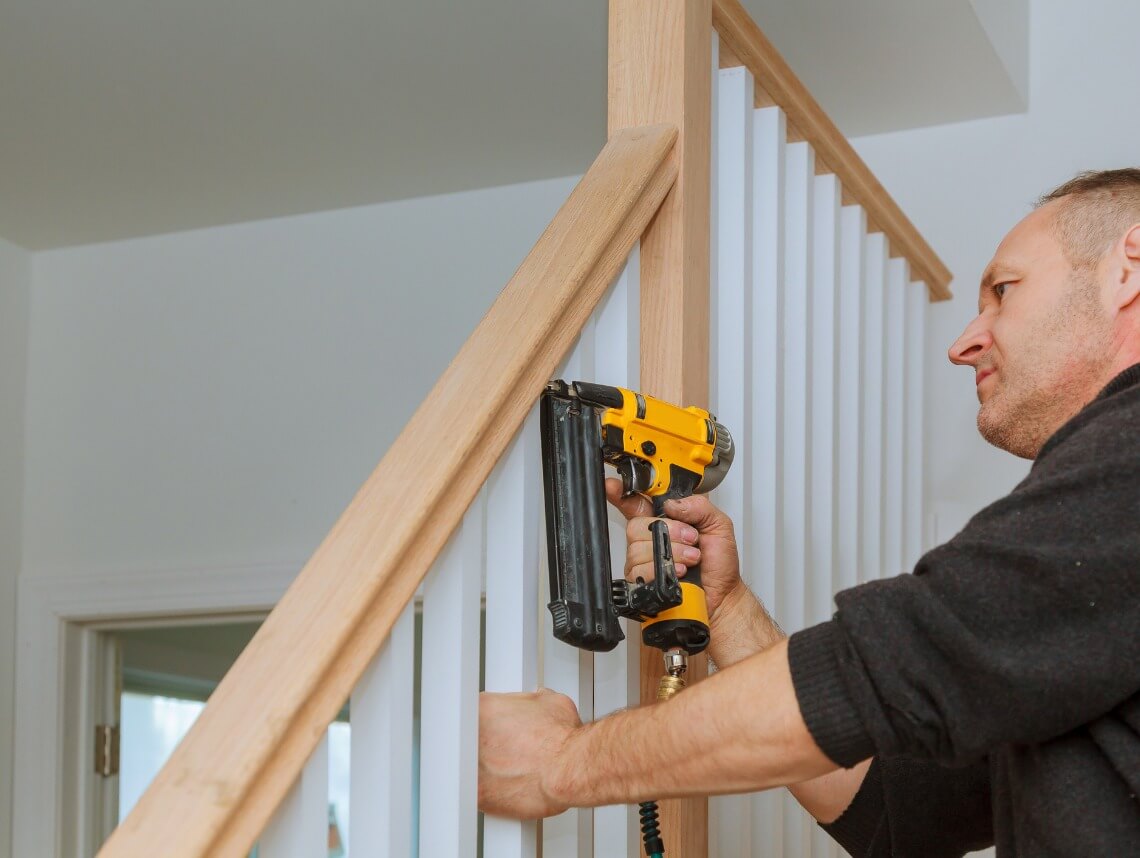When taking on the role of caregiver for an elderly family member, many thoughts will go through your mind. One of the most common concerns is whether your loved one will be safe in your home and if costly home modifications are necessary to accommodate his or her physical condition.
Guide to Home Modifications for Seniors Aging in Place
Take a look at a few small changes that could be made to your home that won’t require construction.
Floors, Stairs & Walkways
According to the CDC, nearly 1 in every 3 adults over the age of 65 will fall each year, often leading to hospitalization or admittance to long-term care facilities. Fortunately, by taking the right precautionary measures, falls can be prevented.
- Rearrange furniture (if possible) to clear a path around the home for increased mobility.
- Consider moving area rugs that are easy to trip over. Secure any rugs with double-sided tape, or insert a non-slip pad underneath the rug.
- Keep all small objects off the floor and stairs. This includes children’s toys, books, shoes, blankets, etc.
- Secure any loose cords or wires from the TV, lamps, telephone, etc. to avoid accidental falls.
- Secure any loose steps, floor panels or carpeting.
- Place night lights throughout the home to avoid accidents at night.
- Fix any loose handrails or doorknobs.
- Make sure all stairways are well lit. You may want to consider placing a reflector on each step to avoid missing a step.
- Buy your loved one a pair of slip-resistant slippers or house shoes.
Bathrooms
Research shows that nearly 80% of senior falls happen in the bathroom. As a family caregiver, it is important to make your bathroom as safe as possible for your loved one. Consider the following:
- Install grab bars inside of the bathtub and next to the toilet. Important: Be sure to have a professional/carpenter install these bars. If not installed properly, this can lead to injury.
- Place non-slip mats on the base of the tub/shower and be sure to place non-slip rugs by the toilet and sink.
- Make sure the bathroom is well lit during the night to avoid any accidents.
- Mark faucets accordingly with Hot and Cold to avoid burns.
For more tips, check out our article: Bathroom Safety Tips to Prevent Falls in the Elderly
Bedroom
Many times, accidents that occur in the bedroom can be avoided with proper lighting and other minor modifications. Take a look at the following tips to avoid injury in the bedroom:
- Place lamps within reach.
- Place nightlight(s) in the bedroom in case your loved one needs to use the restroom in the middle of the night.
- Be sure that the bed is at an appropriate height to avoid injury getting in and out of bed alone.
- If possible, avoid having your loved one use the stairs by placing him or her in a bedroom on the first floor of your home.
- Make sure all clothing/accessories are within reach (avoid having to reach for frequently used items).
- Consider the use of a baby monitor or placing a telephone nearby in case your loved one needs assistance in the middle of the night.
- If your loved one uses a walker or a cane, be sure it is placed within reach.
Kitchen
For many, the kitchen is where many treasured memories are made. Unfortunately, the kitchen also poses many dangers, especially for seniors. The following tips can help reduce the risk of injury caused by hot surfaces, spilled liquids, and hard-to-reach items.
- Rearrange cabinets and drawers to be sure frequently used kitchen items are within reach.
- If a loved one requires supervision in the kitchen, clearly label the controls for stovetops, ovens, microwave, etc. and be sure that switches are on the front of the stove to avoid reaching over burners.
- Install safety switches and automatic shut-off controls when necessary.
- Consider unplugging certain appliances when not in use to avoid accidents.
These and other home modifications can greatly reduce the risk of falls, burns and other accidents and injuries in the home. Doing so not only provides peace of mind for you and your family, but it also helps your loved one maintain independence in the home.
Contact Sonas for Home Health Care Services in Florida
If you or a loved one needs assistance at home or more information about home health care options, Sonas Home Health Care can help. We refer loving and knowledgeable caregivers to provide a variety of home health care services – from around-the-clock care to homemaking services. Contact us directly or visit us online to request a free in-home assessment.
If you or an aging loved one are considering home health care services in Florida, contact the caring staff at Sonas Home Health Care. Call today (888) 592-5855.
This blog was reviewed by Jillian Miller BSN, RN — Director of Nursing for Sonas Home Health Care’s Tampa Bay market — for clinical accuracy. Jillian Miller has been a nurse for 16 years — working primarily in pediatrics. She believes the best part of working with the pediatric population is when you see smiles from clients when you first enter the room. She loves seeing the difference you can make in families’ lives while providing the best care possible for them.

